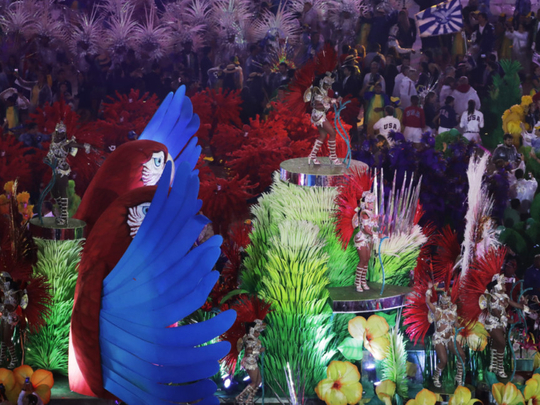
‘The 2016 Summer Games drew to a close after two thrilling weeks, sending many a sports fan into Olympics withdrawal,” said the Montreal Gazette. “There were serious doubts that Rio de Janeiro would manage to pull off the event, with construction delays, security fears, corruption concerns, political scandals and even Zika threatening to derail Brazil’s turn at hosting. But those distractions faded once the competition began,” the paper said in an editorial. While noting that there were low moments at the Games like in any other Olympics, such as the green water in the diving pool, sewage in the harbour, gridlock on Rio roads, a scalping scandal involving an Irish International Olympic Committee official and the bizarre saga of American swimmer Ryan Lochte falsely claiming to have been robbed at gunpoint by Brazilian police, the paper observed that “Rio, true to form, served up its share of epic sporting moments”.
The Guardian turned its attention to the continuity in the themes of London Olympics of 2012 and Rio. “The Olympics are a global corporation. They are not perfect. It might be better to hold them on a permanent site in Greece — good for the Greek economy too — than to rotate the Games every four years. But Rio is confirming what London taught. The Games are worthwhile. They celebrate individual achievement of every kind, not just national prowess. They bring people together far more than they drive them apart. And the people of the world respond to them with real enthusiasm. None of that is bad. Memo to ourselves in 2020 and beyond: The Olympic Games will be fine, come what may,” the paper said in an editorial.
The Toronto Star fixed its gaze on the glamour, gaffes and quirkier moments at the Games and said: “Laurels to matches made in Rio. There were at least five marriage proposals at the Olympics. Among them: Chinese diver He Zi’s boyfriend, fellow diver Qin Kai, got down on one knee in front of a crowd and proposed to her after she won the silver medal; Brazilian Olympics volunteer Marjorie Enya proposed to her girlfriend, Isadora Cerullo, a member of Brazil’s rugby team, over the Deodoro Stadium’s loudspeakers; and moments after UNited States athlete Will Claye won the silver medal in the triple jump, he asked to be lifted into the stands so he could propose to his girlfriend, 400-metre hurdler Queen Harrison. Awww!”
The final word on the biggest spectacle on Earth, however, must belong to the New York Times, which said: “There is something in the developed world that does not like a developing country that organises a major sporting event ... We don’t recall reporters combing the poorest, most crime-ridden parts of Britain in 2012 to find people ready to grumble about the London Olympics. These Olympics are good for Brazil and good for humanity, a needed tonic. Watch Usain Bolt or Simone Biles and feel uplifted. Our preferred image is that of Rafaela Silva, the young Brazilian woman from the violent Rio slum of Cidade de Deus, who won a gold medal in judo and declared: ‘This medal demonstrates that a child who has a dream should believe, even if it takes time, because the dream can be realised’.”




_resources1_16a31069e4e_small.jpg)






